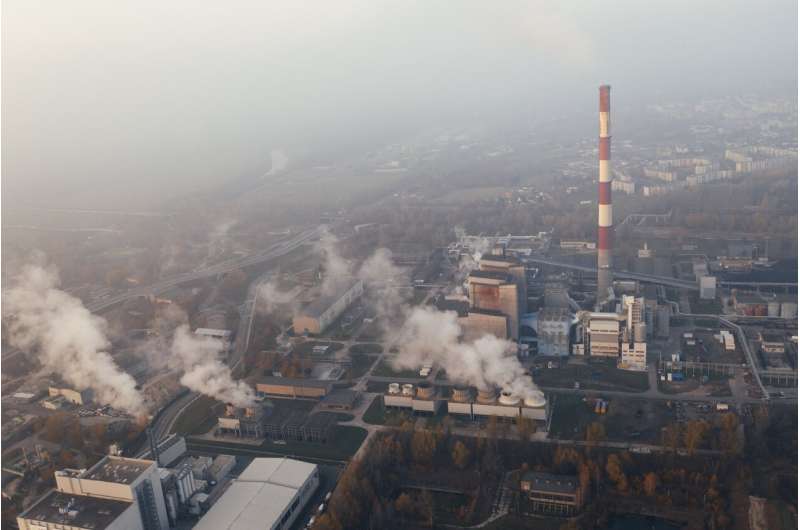Living in more polluted areas increases risk for poor mental wellbeing

People in the UK who live in more polluted areas, such as near busy roads, are at a higher risk of poor mental wellbeing, new research led by the University of St Andrews has found.
The study examined four types of air pollutants—nitrogen dioxide, sulfur dioxide and two types of particulate matter, those with diameters of less than 10 and 2.5µm (micrometers)—and linked these to individual-level health data.
It found a connection between air pollution and people reporting low mental wellbeing affects such as feeling unhappy, being under stress and not being able to concentrate.
It also found a potential link between increasing concentration of sulfur dioxide and particulate matter and elevated scores of poor mental wellbeing for people from a Pakistani/Bangladeshi origin in comparison with British-White people, and for non-UK born individuals in comparison with those born in the UK.
Nitrogen dioxide is mainly produced from traffic exhaust around busy roads, while sulfur dioxide is mainly an industrial type of pollutant. Nitrogen dioxide and sulfur dioxide are gaseous types of pollutants. Particulate matter is related to both traffic exhaust and industrial processes and it is made up of microscopic solid or liquid matter suspended in the atmosphere.
Mary Abed Al Ahad, of the School of Geography and Sustainable Development at St Andrews, says that "the main conclusion from the study was that living in a polluted area appears to be linked to suffering from mental wellbeing issues."
"Our results cross disciplines to provide environmental health researchers and policymakers with the needed evidence towards reducing air pollution emissions to improve the individual's mental wellbeing and health."
"However, further research will be needed to examine the link between pollution and wellbeing more closely."
The study used data from the Understanding Society: The UK household Longitudinal Study which measured wellbeing using the General Health Questionnaire (GHQ12) scale, a widely used scale in population health research to capture non-psychotic psychiatric illness.
The GHQ12 scale is composed of 12 questions about an individual's experience of 12 symptoms related to mental wellbeing in the few weeks preceding the data collection date.
The 12 questions are on subjects including: ability to concentrate; losing much sleep; feeling you are playing a useful part; capability of taking decisions; being under stress; inability to overcome difficulties; enjoying normal activities; being able to face up to problems; feeling unhappy and depressed; losing confidence; thinking of self as worthless; and feeling reasonably happy.
Individuals are then asked to rate the questions and a general mental wellbeing score is formulated.
The paper is published in PLOS ONE and is available online.
More information: Mary Abed Al Ahad et al, Air pollution and individuals' mental well-being in the adult population in United Kingdom: A spatial-temporal longitudinal study and the moderating effect of ethnicity, PLOS ONE (2022). DOI: 10.1371/journal.pone.0264394
Journal information: PLoS ONE
Provided by University of St Andrews




















